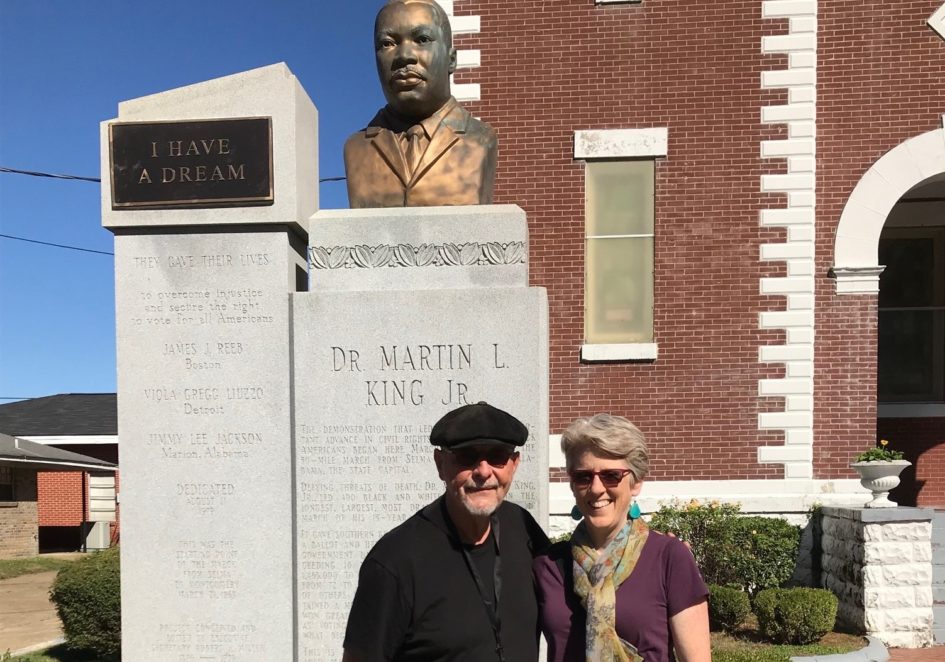January 16, 2020
MLK Jr. Day: Honoring All Aspects of His Legacy

As Martin Luther King Jr. Day approaches, I am reminded of the early messages I got growing up about the civil rights struggle, Dr. King’s teachings and the path to justice. Singing “We Shall Overcome” at my junior high Martin Luther King Jr. Day assembly created an uplifting and hopeful feeling. However, I have come to realize a seriously “whitewashed” view of the racial divide in our country. Among other things, this experience set me up to believe colorblindness was the goal and ultimate path to racial justice. Today, I know that this is a dangerous path that in most ways leads away from racial justice – as it allows people to ignore and deny persistent discrimination based on race.
I recently re-read a great TeenVogue article on the mis-remembered radical nature of Dr. Martin Luther King Jr. In the article, author Jenn M. Jackson, reminds us that the “sanitized version of King’s life and work – the colorblind ‘I have a dream’ narrative – often fails to acknowledge how King’s increasing profile as a radical, anti-racist organizer drew antagonism from the FBI.” The article cites a 1966 public poll rating of Dr. King, who held a 32 percent positive rating at the time, versus the 94 percent positive rating he received in 2011. Martin Luther King Jr.’s perception as a positive leader and his popularity rose over time as people in power appropriated his vision and messages. Jackson writes that his positive public rating “is the product of generations of appropriation of his liberatory work and a whitening of his effort to ensure more freedom for those least likely to attain it in the United States.”
Over the years, I came to see Martin Luther King Jr. Day as one of the long weekends I looked forward to during the winter. Although I felt uncomfortable about my complicity around Martin Luther King Jr. Day, I had not yet recognized my white privilege and the ability for me to simply take this day off. This year will be different. Since participating in Project Pilgrimage this fall, I feel compelled to take action on Martin Luther King Jr. Day. I will be attending both a Town Hall Seattle event to hear A Scribe Called Quess? with Nikkita Oliver, on dismantling the colonial legacy, and Seattle’s annual Martin Luther King Jr. Day and March to City Hall.
As I mentioned in a recent blog about my Project Pilgrimage experience, it is the radical call to action in Martin Luther King Jr.’s 1965 speech: Where do we go from here?, that calls to me: “And so, I conclude by saying today that we have a task, and let us go out with a divine dissatisfaction … Let us be dissatisfied until those who live on the outskirts of hope are brought into the metropolis of daily security.” This is a conversation that WithinReach has been having and continues to have as we work to reduce health disparities among those furthest from the opportunity to thrive. We ask ourselves, what is our role in acting on divine dissatisfaction, and how do we address the disparities that prevent people from being healthy?
As an organization, all of us at WithinReach hope to bring forward Martin Luther King Jr.’s radical work to help lead our own work with families and communities across the state. With our new racial equity statement, we acknowledge that race is a leading predictor in health disparities and, therefore, we are committed to meeting the needs of people of color and challenging structures of racism and oppression. Both on Martin Luther King Jr. Day and throughout our ongoing equity journey, we hope to honor all aspects of Dr. King’s legacy and help build systems and communities where low-income families and communities of color can thrive.
Join us in “divine dissatisfaction,” working together in radical ways to ensure the health and safety of all families in our state.



